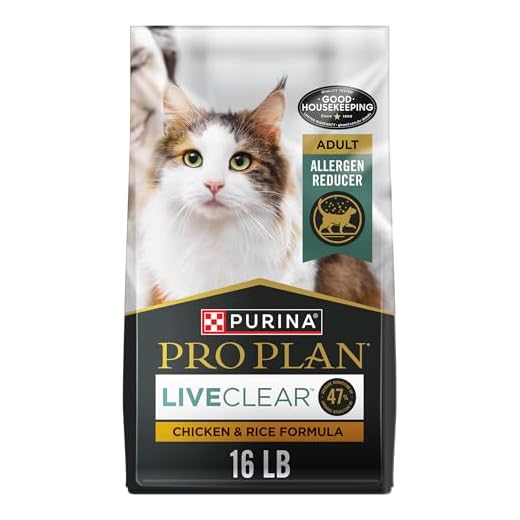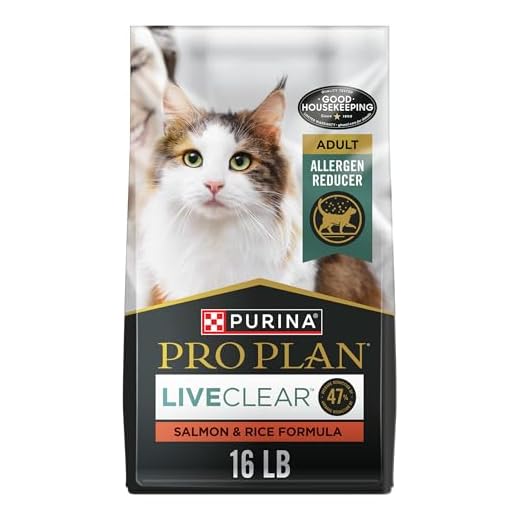



As an 8-year-old Scottish Fold, I know how frustrating it can be to deal with irritating sensitivities. If you’re wondering about treatments available for those pesky reactions, you’re in the right place. Various options exist that can help manage symptoms effectively.
First off, consult your veterinarian for tailored advice. They may recommend antihistamines, which can alleviate itching and discomfort. Medications like cetirizine or diphenhydramine are commonly used, but only under professional guidance. Dosing is crucial; never administer anything without veterinary approval.
In addition, topical treatments can provide localized relief. Shampoos designed to soothe sensitive skin can help wash away allergens and reduce irritation. Regular grooming also plays a significant role in minimizing exposure to environmental triggers.
Consider dietary adjustments as well. Some individuals may benefit from hypoallergenic food options. These specialized diets can help identify and eliminate potential irritants found in regular pet food. Always introduce new diets gradually to monitor for any adverse reactions.
Lastly, environmental control is key. Regular cleaning, using air filters, and keeping your space free of dust and pollen can greatly improve your furry friend’s comfort. By taking proactive steps, a more pleasant life awaits both you and your beloved companion.
Types of Allergy Medications Suitable for Cats
If you notice signs of discomfort, consider using antihistamines such as diphenhydramine or cetirizine. These can help alleviate symptoms related to environmental triggers. Always consult with a veterinarian to determine the right dosage, as it varies depending on body weight.
For more severe reactions, corticosteroids like prednisone might be prescribed. These work by reducing inflammation and can provide quick relief from symptoms. However, long-term use should be monitored closely by a vet due to potential side effects.
Immunotherapy is another option, where small doses of allergens are administered over time. This can build a tolerance and lessen reactions in the long run. Discuss this method with a veterinarian to see if it’s suitable for your feline friend.
Topical treatments, like hydrocortisone creams, can also be effective for localized itching or irritation. Make sure to apply them as directed, and prevent your kitty from licking the area until it’s fully absorbed.
For respiratory symptoms, bronchodilators may be necessary. These help open airways and make breathing easier, especially if sneezing becomes frequent. If you’re curious about the causes of sudden sneezing, check out this link: why is my cat suddenly sneezing so much.
Always prioritize regular check-ups to keep track of your furry friend’s health and adjust treatments as needed. Your vet will guide you through the best options tailored to your companion’s specific needs.
How to Safely Administer Allergy Medicine to Your Cat
Always consult with a veterinarian before starting any treatment. They will provide guidance on appropriate dosages and types of treatments suitable for my kind. Take the following steps to ensure a smooth experience.
Proper Administration Techniques
For oral medications, hiding the pill in a small amount of wet food or a favorite treat works well. If your human has trouble getting the pill down, they can try using a pill popper. For liquid forms, using a syringe without a needle can make it easier to deliver the correct dose directly into my mouth.
Monitoring and Follow-Up
After administering any treatment, observe for any changes in behavior or health. Side effects can occur, and it’s essential to monitor me closely. If any unusual symptoms arise, including lethargy or changes in appetite, contact a vet immediately. For specifics on how long do revolution side effects last, check this link. It’s crucial to stay informed about how treatments affect me.
Video:
As an 8-year-old Scottish Fold, I know how frustrating it can be to deal with irritating sensitivities. If you’re wondering about treatments available for those pesky reactions, you’re in the right place. Various options exist that can help manage symptoms effectively.
First off, consult your veterinarian for tailored advice. They may recommend antihistamines, which can alleviate itching and discomfort. Medications like cetirizine or diphenhydramine are commonly used, but only under professional guidance. Dosing is crucial; never administer anything without veterinary approval.
In addition, topical treatments can provide localized relief. Shampoos designed to soothe sensitive skin can help wash away allergens and reduce irritation. Regular grooming also plays a significant role in minimizing exposure to environmental triggers.
Consider dietary adjustments as well. Some individuals may benefit from hypoallergenic food options. These specialized diets can help identify and eliminate potential irritants found in regular pet food. Always introduce new diets gradually to monitor for any adverse reactions.
Lastly, environmental control is key. Regular cleaning, using air filters, and keeping your space free of dust and pollen can greatly improve your furry friend’s comfort. By taking proactive steps, a more pleasant life awaits both you and your beloved companion.
Types of Allergy Medications Suitable for Cats
If you notice signs of discomfort, consider using antihistamines such as diphenhydramine or cetirizine. These can help alleviate symptoms related to environmental triggers. Always consult with a veterinarian to determine the right dosage, as it varies depending on body weight.
For more severe reactions, corticosteroids like prednisone might be prescribed. These work by reducing inflammation and can provide quick relief from symptoms. However, long-term use should be monitored closely by a vet due to potential side effects.
Immunotherapy is another option, where small doses of allergens are administered over time. This can build a tolerance and lessen reactions in the long run. Discuss this method with a veterinarian to see if it’s suitable for your feline friend.
Topical treatments, like hydrocortisone creams, can also be effective for localized itching or irritation. Make sure to apply them as directed, and prevent your kitty from licking the area until it’s fully absorbed.
For respiratory symptoms, bronchodilators may be necessary. These help open airways and make breathing easier, especially if sneezing becomes frequent. If you’re curious about the causes of sudden sneezing, check out this link: why is my cat suddenly sneezing so much.
Always prioritize regular check-ups to keep track of your furry friend’s health and adjust treatments as needed. Your vet will guide you through the best options tailored to your companion’s specific needs.
How to Safely Administer Allergy Medicine to Your Cat
Always consult with a veterinarian before starting any treatment. They will provide guidance on appropriate dosages and types of treatments suitable for my kind. Take the following steps to ensure a smooth experience.
Proper Administration Techniques
For oral medications, hiding the pill in a small amount of wet food or a favorite treat works well. If your human has trouble getting the pill down, they can try using a pill popper. For liquid forms, using a syringe without a needle can make it easier to deliver the correct dose directly into my mouth.
Monitoring and Follow-Up
After administering any treatment, observe for any changes in behavior or health. Side effects can occur, and it’s essential to monitor me closely. If any unusual symptoms arise, including lethargy or changes in appetite, contact a vet immediately. For specifics on how long do revolution side effects last, check this link. It’s crucial to stay informed about how treatments affect me.
Video:
As an 8-year-old Scottish Fold, I know how frustrating it can be to deal with irritating sensitivities. If you’re wondering about treatments available for those pesky reactions, you’re in the right place. Various options exist that can help manage symptoms effectively.
First off, consult your veterinarian for tailored advice. They may recommend antihistamines, which can alleviate itching and discomfort. Medications like cetirizine or diphenhydramine are commonly used, but only under professional guidance. Dosing is crucial; never administer anything without veterinary approval.
In addition, topical treatments can provide localized relief. Shampoos designed to soothe sensitive skin can help wash away allergens and reduce irritation. Regular grooming also plays a significant role in minimizing exposure to environmental triggers.
Consider dietary adjustments as well. Some individuals may benefit from hypoallergenic food options. These specialized diets can help identify and eliminate potential irritants found in regular pet food. Always introduce new diets gradually to monitor for any adverse reactions.
Lastly, environmental control is key. Regular cleaning, using air filters, and keeping your space free of dust and pollen can greatly improve your furry friend’s comfort. By taking proactive steps, a more pleasant life awaits both you and your beloved companion.
Types of Allergy Medications Suitable for Cats
If you notice signs of discomfort, consider using antihistamines such as diphenhydramine or cetirizine. These can help alleviate symptoms related to environmental triggers. Always consult with a veterinarian to determine the right dosage, as it varies depending on body weight.
For more severe reactions, corticosteroids like prednisone might be prescribed. These work by reducing inflammation and can provide quick relief from symptoms. However, long-term use should be monitored closely by a vet due to potential side effects.
Immunotherapy is another option, where small doses of allergens are administered over time. This can build a tolerance and lessen reactions in the long run. Discuss this method with a veterinarian to see if it’s suitable for your feline friend.
Topical treatments, like hydrocortisone creams, can also be effective for localized itching or irritation. Make sure to apply them as directed, and prevent your kitty from licking the area until it’s fully absorbed.
For respiratory symptoms, bronchodilators may be necessary. These help open airways and make breathing easier, especially if sneezing becomes frequent. If you’re curious about the causes of sudden sneezing, check out this link: why is my cat suddenly sneezing so much.
Always prioritize regular check-ups to keep track of your furry friend’s health and adjust treatments as needed. Your vet will guide you through the best options tailored to your companion’s specific needs.
How to Safely Administer Allergy Medicine to Your Cat
Always consult with a veterinarian before starting any treatment. They will provide guidance on appropriate dosages and types of treatments suitable for my kind. Take the following steps to ensure a smooth experience.
Proper Administration Techniques
For oral medications, hiding the pill in a small amount of wet food or a favorite treat works well. If your human has trouble getting the pill down, they can try using a pill popper. For liquid forms, using a syringe without a needle can make it easier to deliver the correct dose directly into my mouth.
Monitoring and Follow-Up
After administering any treatment, observe for any changes in behavior or health. Side effects can occur, and it’s essential to monitor me closely. If any unusual symptoms arise, including lethargy or changes in appetite, contact a vet immediately. For specifics on how long do revolution side effects last, check this link. It’s crucial to stay informed about how treatments affect me.








